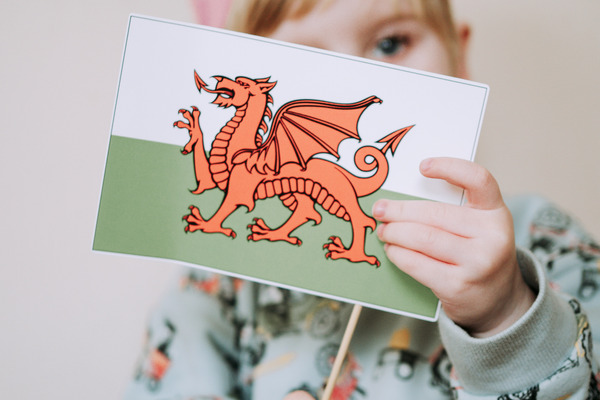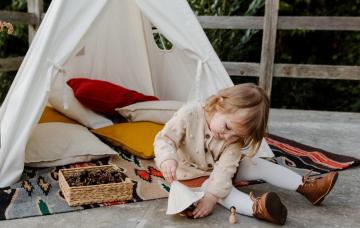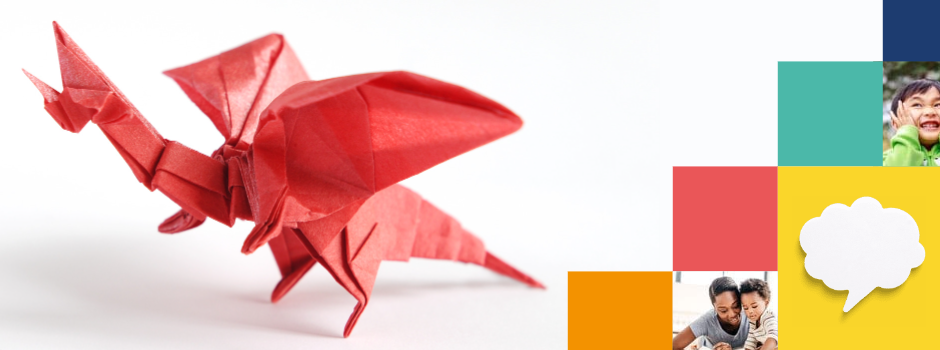
In 2017 Welsh Government set out it's vision to increase the the number of people able to enjoy speaking and using Welsh to a million by 2050. This is certainly an ambitious challenge, but a challenge Early Years Wales believes is worthwhile and necessary if we are to secure the vitality of the language for future generations.
>> Welsh Language Strategy - Cymraeg 2050 A million Welsh speakers
Welsh Government is very clear that it 'cannot insist that parents and carers use the Welsh language with their children, that children play together in Welsh or that someone uses Welsh socially' It can, however, 'work to provide the conditions to facilitate an increase in the use of Welsh'.
With this in mind Early Years Wales has adopted the following principles established by the Welsh Language Act 1993, and Welsh Language (Wales) Measure 2011 which state that:
- In Wales, the Welsh language should be treated no less favourably than the English language
- Persons in Wales should be able to live their lives through the medium of the Welsh language if they choose to do so
Early Years Wales provides bespoke support to the early years sector in Wales to support the development and growth of the Welsh language.
On these pages you will find up to date and relevant information, a host of downloadable resources and useful links designed to support the development and implementation of the Welsh language in the early years.
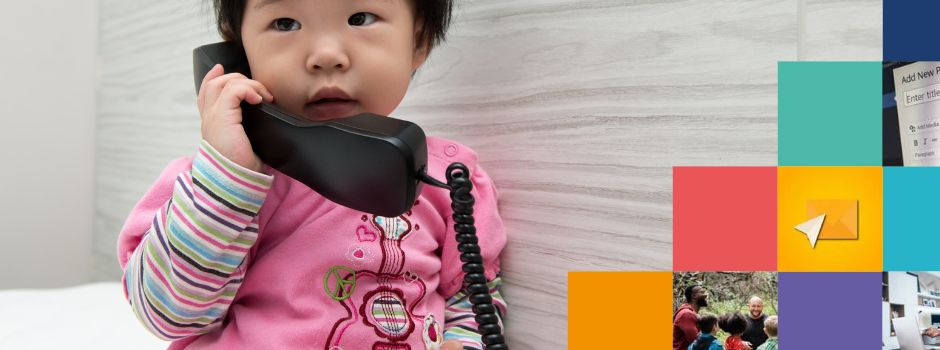
Early Years Wales is funded by Welsh Government to provide high quality and relevant Welsh support to the early years workforce in Wales, ranging from training, providing guidance on embedding the language in daily practice to transition your setting to a truly bilingual or even Welsh medium setting.
No two settings are the same and neither is the support that is required. Support is provided through several methods;
- Telephone.
- Email.
- Video conferencing.
- Physical visits.
- Blogs and Vlogs.
For support with Welsh language learning through Camau please contact Siobhan Chambers.
For support with all other things Welsh, from the Active Offer to WESP (Welsh in Educations Strategic Plan) or transitioning practice from English to bilingual or even Welsh please contact Matt Anthony.
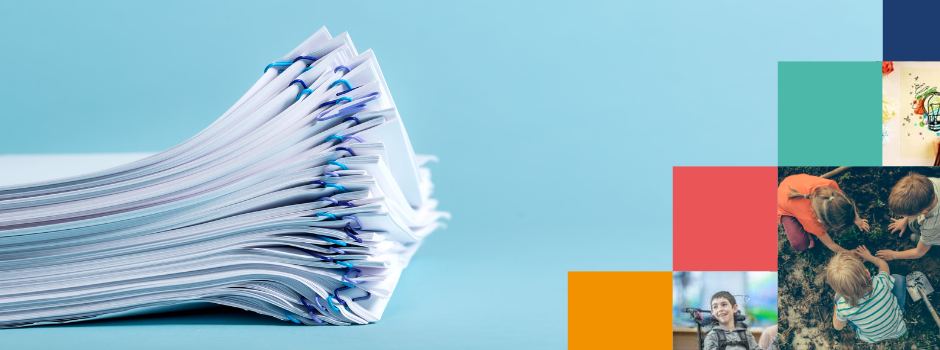
Welsh Government has passed a number of policies and strategies to increase the number of Welsh speakers and the opportunities for the language to been seen, heard and used in everyday life.
Following developments in language policy, service providers need to take reasonable steps to ensure that they have proportionate, appropriate and adequate staffing arrangements in place to provide a bilingual care service and ensure that;
- Welsh language services in social care are of the same standard and are as easily and promptly available as English medium services.
- Welsh language services in social care are as wide-ranging and thorough.
- Organisations shouldn't assume English as the default language when providing their services.
- Welsh speakers should not be required to ask for a service in Welsh.
The main language policies and strategies introduced by Welsh Government are;
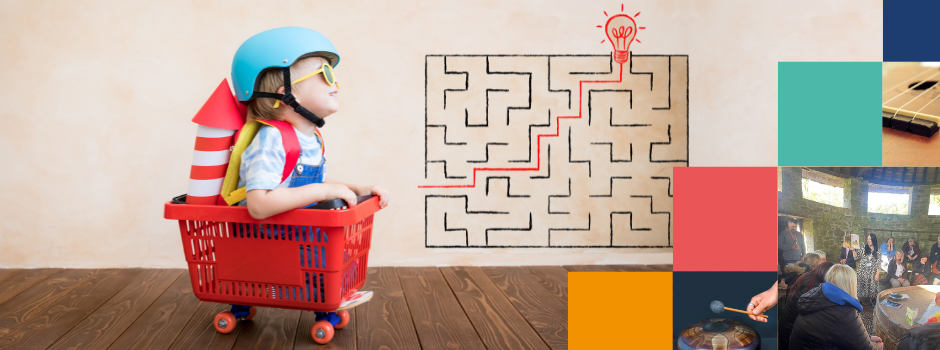
Having fun with language!
The Cydweith Cymraeg project takes a collaborative approach to Welsh language learning in the early years and delivers exciting and engaging child-centered activities, bringing parents, practitioners, and children together to learn the language.
These sessions are themed and consist of games, stories and songs. They not only focus on developing Welsh language skills, but they are also heuristic and consist of serve and return interactions, which help promote healthy brain development.
The main objective is to have fun with the Welsh language!
Kaycie Millwater (South and West Wales): [email protected]
Siobhan Chambers (North and Mid Wales): [email protected]
"We were thrilled at how well our children sat and engaged with you as being a child led setting this is not something they are used to doing, the fact that they sat so well is testament to how you were with them. You honestly would never have known it was your first one!”
A massive thank you for coming along again and well done on managing so many children!” - St. Helen's Cygnets
“The children have loved the sessions, after the first one, we noticed them singing more songs in Welsh and using phrases around the classroom and in their play, particularly role play. After the last session (new cohort) the children have been more engaged with the books and soft toys creating their own stories and using Welsh words that they are familiar with.
We've loved having the sessions with you and are excited to continue developing this relationship.” - St Paul's Flying Start
“We had lots of fun and opportunities for bilingual language acquisition as we sang and danced along to songs in Welsh and English. We used maths skills to name colours bilingually as we mark made on lovely Early Years Wales mascot kite pictures too.
The children loved the calming sounds of the drum as Kaycie played nursery rhymes and used our imagination and role play skills to be speckled frogs. Thank you so much for coming Kaycie! What a bendigedig session we had! Diolch yn fawr.” - North Cornelly Community Playgroup
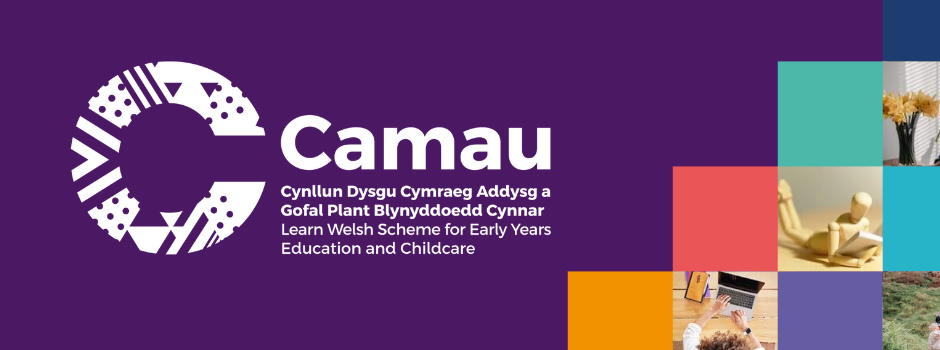
Start Your Camau Welsh Language Journey
Camau is a free, fully-funded online Welsh language learning programme created specifically for the early years and childcare workforce in Wales. It is part of the national Work Welsh programme, delivered by the National Centre for Learning Welsh, and tailored to support real-life language use in settings with children from birth to five.
Whether you're completely new to the language or already using some Welsh in your daily routines, Camau offers a structured, supportive, and practical way to build your confidence and embed Welsh naturally into your work with children, families, and colleagues.
What Makes Camau Different?
Camau has been designed with early years professionals in mind. The content reflects the kinds of interactions, routines, and conversations that happen every day in nurseries, playgroups, Cylchoedd Meithrin, childminding settings, out of school clubs and more.
The courses focus on:
- Useful, real-world Welsh – no unnecessary grammar or theory
- Flexible, bite-sized learning – perfect for busy practitioners
- Cultural awareness – to help practitioners connect children to their cynefin (sense of place and identity)
- Everyday language for settings – greetings, playtime, routines, stories, and songs
The Three Levels of Camau
Camau is made up of three progressive levels, so you can start at the point that best reflects your current Welsh language skills:
- Entry (30 units)
For those with little or no Welsh – learn simple phrases, greetings, and essential vocabulary to use every day. - Foundation (30 units)
For those with basic Welsh who want to grow in confidence – build short sentences and begin holding simple conversations. - Intermediate (20 units)
For those who are more confident – understand and use Welsh in extended conversations and work-related contexts.
All courses are:
- Self-study and online
- Free of charge
- Designed to fit around your work and life
Why It Matters
By taking part in Camau, you're not just learning a language – you're:
- Supporting children's language development
- Promoting cultural identity and inclusion
- Helping achieve the goals of Cymraeg 2050
- Becoming part of a bilingual early years workforce across Wales
Every word you learn makes a difference. Every phrase you share helps create a richer, more inclusive experience for the children in your care.
How to Get Started
Step 1: Complete the short Camau Welsh Skills Form
This helps us understand your current level and connect you with the course that’s right for you.
Step 2: Receive a personalised email
We'll send you a link to your Camau course, along with helpful resources, contact information, and support opportunities.
Step 3: Click the link to enrol
If you don't yet have an account with the National Centre for Learning Welsh, you’ll be asked to create one. After registering, simply click the link again to be taken to your Camau course.
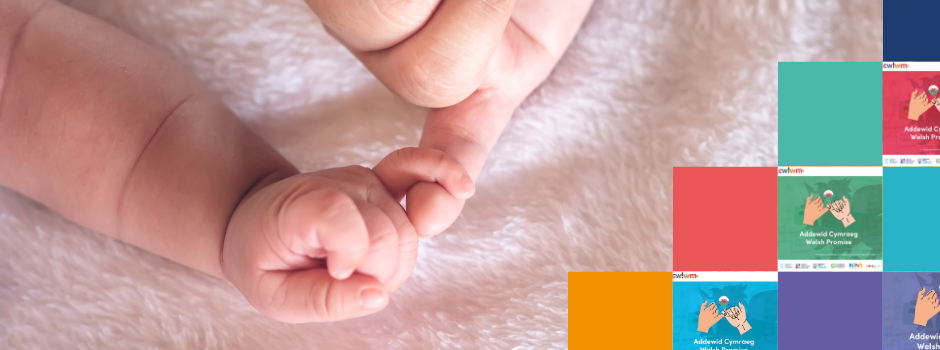
Cwlwm's Welsh Promise supports the early years, childcare, and playwork sectors to plan for progress with their Welsh language offer.
Welsh Promise Reflection Tool: Assess Your Practice
The Welsh Promise Reflection Tool is a simple, reflective tool designed to help early years settings assess their Welsh language practice. It provides a structured way to review how well Welsh is embedded in daily routines, play, interactions, and the environment, as well as how staff skills are developed.
By completing the tool, your setting can:
- Reflect honestly on current practice using a clear progression scale: Not Yet → Developing → Established → Fully Embedded.
- Identify areas for development and plan targeted actions to strengthen Welsh language provision.
- Support staff learning, from everyday interactions to formal training.
- Prepare for submitting evidence for the Welsh Promise, helping teams think about their practice before formally documenting it.
- Inform tailored online training and resources, based on common themes across settings.
The Reflection Tool is quick, easy to complete, and insightful, helping your team take the first step towards embedding high-quality Welsh language practice. It can also act as evidence for the Welsh Promise, supporting settings in meeting the "Assess Practice" criterion and turning reflection into action for continuous improvement.
You can now use our online Welsh Promise tool to complete a self-assessment of your setting's current use of Welsh, upload evidence, and receive tailored support after your submission. Ideas for evidence are available on our website to help you capture and showcase your progress.
To make this even easier, we've created three practical resources outlining the types of evidence you can use for each question at every level. These guides give clear examples and ideas to help you celebrate achievements, identify next steps, and demonstrate the impact of Welsh across your setting:
| Attachment | Size |
|---|---|
| 2.59 MB |
| Attachment | Size |
|---|---|
| 16.91 MB |
| Attachment | Size |
|---|---|
| 4.59 MB |
We will be hosting the Welsh Promise Community Hub online on the 15th of every month (or the preceding Friday if the 15th falls on a weekend). This is a space for settings to share experiences, ask questions, and learn from others as you work towards your Welsh Promise goals. Click here to book your space.
Cynllun Plethu is a collaborative project delivered in partnership with Mudiad Meithrin. Together, we identify English or bilingual childcare settings that show potential to grow and support them on their journey toward becoming full Welsh-medium immersion settings.
By offering tailored guidance, practical resources, and consistent mentoring, Cynllun Plethu helps each setting build confidence in using the Welsh language naturally and meaningfully throughout the day. The project recognises that every setting is different and works closely with practitioners to weave the Welsh language into their unique routines, culture, and community.
Through this supportive and flexible approach, Cynllun Plethu not only helps develop language-rich environments for children but also empowers staff and families to embrace Welsh-medium education as a positive and achievable goal.
For more information please contact Matt Anthony [email protected]
Grŵp Chwarae Llanfairfechan Playgroup has truly embraced the spirit of Cynllun Plethu, showing passion, positivity, and a deep belief in the power of the Welsh language.
With dedicated support from Early Years Wales and Mudiad Meithrin, the team has transformed their setting into a warm, language-rich environment where Welsh is woven naturally into every day.
This journey is a shining example of what's possible when commitment meets collaboration, and a celebration of how early years settings can lead the way in shaping a bilingual future.
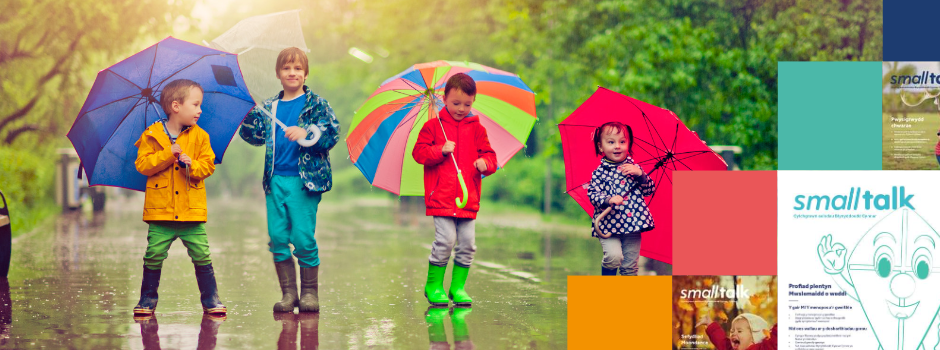
‘One of the most important areas we can develop as professionals is competence in accessing and sharing knowledge.’ - Connie Malamed
Our quarterly publication smalltalk is a great source for information and regularly includes wonderful articles sharing knowledge and ideas regarding the Welsh language
| Attachment | Size |
|---|---|
| 284.27 KB |
| Attachment | Size |
|---|---|
| 760.15 KB |
| Attachment | Size |
|---|---|
| 241.16 KB |
| Attachment | Size |
|---|---|
| 500.92 KB |
| Attachment | Size |
|---|---|
| 576.66 KB |
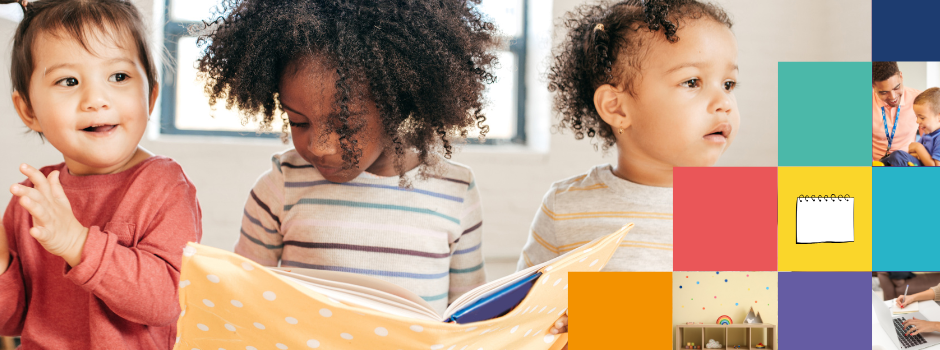
We're proud to support early years settings on their journey to promote and embed the Welsh language.
Below, you'll find a collection of case studies showcasing our Welsh language projects and the positive impact they've had on early years practice.
From small steps to whole-setting approaches, each story highlights real examples of how settings have embraced Welsh in meaningful, practical ways.
| Attachment | Size |
|---|---|
| 311.27 KB |
| Attachment | Size |
|---|---|
| 302.71 KB |

